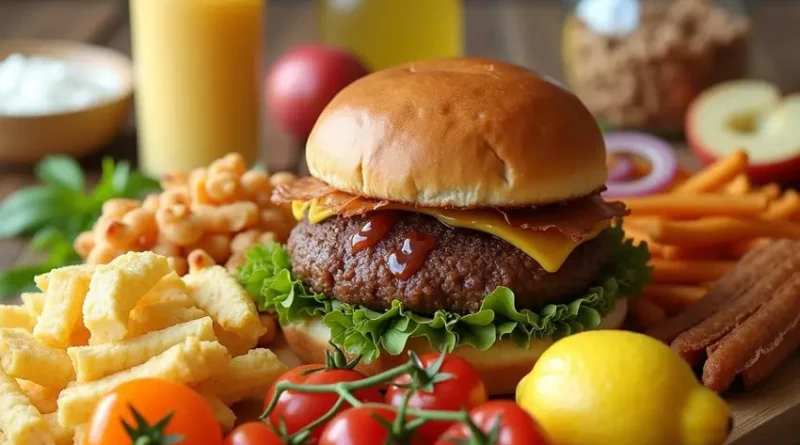The Dangers of Processed Foods and How to Avoid Them
In today’s fast-paced world, processed foods dominate our diets. While convenient, the consumption of these foods can have detrimental effects on our health. Understanding the dangers posed by processed foods and making informed choices can significantly enhance our overall well-being.
Processed foods are typically defined as foods that have been altered from their original form through methods such as canning, freezing, refrigeration, drying, and packaging. This includes items like sodas, chips, candy, pre-packaged meals, and even some seemingly healthy options like fruit juices and flavored yogurt. The primary concern is that these foods often contain unhealthy additives, preservatives, high levels of sugar, unhealthy fats, and sodium, while being stripped of natural nutrients.
One major danger of processed foods is their high sugar content. According to the American Heart Association, excessive sugar intake is linked to a myriad of health issues, including obesity, diabetes, and heart disease. Added sugars sneak into many processed items, often hiding behind names like high fructose corn syrup and agave nectar. Just one soda can have several times the recommended daily limit of sugar, leading to both immediate and long-term health consequences.
Another concern is the addition of unhealthy fats, particularly trans fats, which are commonly found in fried and baked goods. These fats not only contribute to weight gain but also increase the risk of cardiovascular diseases. Numerous studies have shown that trans fats can raise bad cholesterol levels (LDL) and lower good cholesterol levels (HDL), leading to arterial blockages.
Sodium is another hidden danger in many processed foods. According to the Centers for Disease Control and Prevention (CDC), high sodium intake is a leading risk factor for developing high blood pressure, which can result in strokes and heart attacks. Canned soups, sauces, and even breads can contain significantly more sodium than one might expect, often surpassing the recommended daily intake in just a single serving.
Beyond the immediate health risks, processed foods can also contribute to poor dietary habits. The convenience of grabbing a quick snack or pre-packaged meal often leads to a decrease in the consumption of whole, nutrient-dense foods. This shift can result in deficiencies in essential vitamins and minerals that our bodies need to function optimally. For instance, a diet lacking in fruits, vegetables, and whole grains can lead to issues like weakened immune function, digestive problems, and increased susceptibility to chronic diseases.
So, how can we avoid the dangers of processed foods? Here are some helpful strategies:
- Read Labels: Take the time to understand food labels. Look for products that contain minimal ingredients, ideally those that you can recognize and pronounce. Aim for items that do not have added sugars, unhealthy fats, or excessive sodium.
- Cook at Home: Preparing meals at home allows you to control the ingredients in your food. Focus on whole, unprocessed ingredients like fruits, vegetables, lean meats, legumes, and whole grains. Meal prepping can save time and ensure you have healthy options readily available.
- Choose Whole Foods: Prioritize whole foods over processed foods. This includes fresh fruits and vegetables, whole grains, nuts, seeds, and lean proteins. These foods offer the nutrients your body needs without the dangers associated with processing.
- Limit Convenience Items: Try to limit the consumption of convenience foods such as microwave meals and snacks. Instead, opt for healthier alternatives like homemade trail mixes, fresh fruit, or vegetable sticks with humus.
- Educate Yourself: Stay informed about the impact of processed foods on your health. Understanding the differences between various types of food can empower you to make better choices in the grocery store.
In conclusion, while processed foods may make our lives easier, they also carry numerous health risks that should not be overlooked. By being mindful of our food choices and incorporating whole, unprocessed foods into our diets, we can significantly reduce the dangers associated with processed foods and lead healthier, more vibrant lives. Remember, it’s not just about convenience; it’s about nourishing your body with the best fuel possible.

